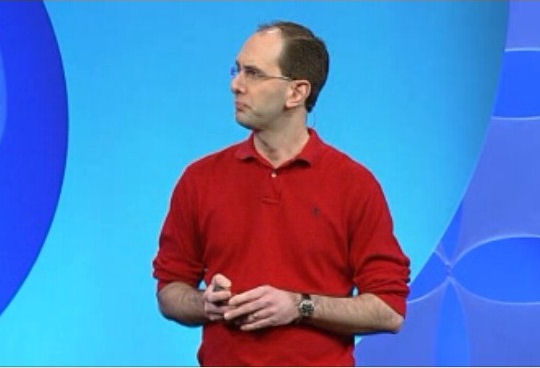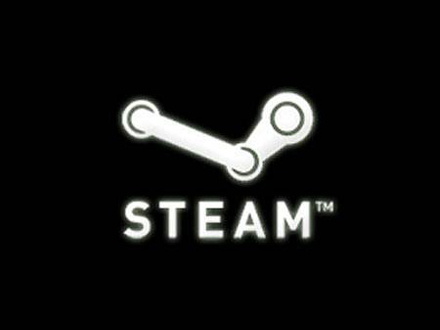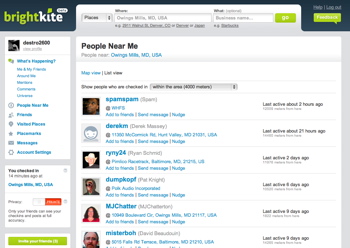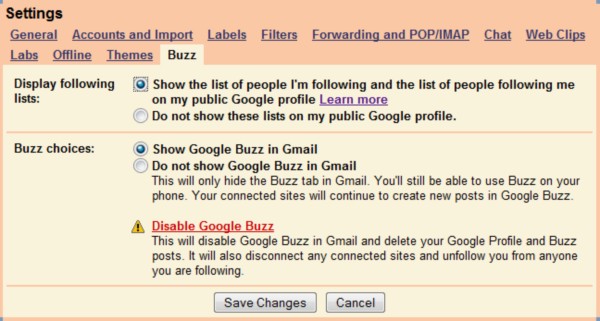
Google is armed for iPad launch
Google today announced its strategy for delivering services on the iPad, and unveiled a new mobile Gmail interface optimized for bigger touchscreens. Since the iPad lies somewhere between a notebook and a smartphone, the Mountain View search company is taking a hybrid approach, offering some services in their desktop format, some in their mobile format, and some as standalone apps.
"We're particularly excited by how tablet computers create the opportunity for new kinds of user interaction," Punit Soni, Product Manager for Google Mobile wrote in the official Google blog. "Here on the mobile team, we often talk about how mobile devices are sensor-rich: they can sense touch through their screens, see with a camera, hear through a microphone, and they know where they are with GPS. The same holds true for tablet computers, and we're just starting to work through how our products can become even better on devices like the iPad."

The explosion of non-Flash devices is driving HTML 5 growth, Brightcove says
Video sharing site Brightcove is using the impending launch of the Apple iPad as a platform to talk up its support for HTML 5, the updated spec for the Web's core markup language which brings rich functionality to sites (such as video) without the need for third-party plug-ins like Adobe's Flash or Microsoft's Silverlight.
Earlier this year, Brightcove's bigger competitors YouTube and Vimeo announced they were experimenting with HTML 5, but both warned that not everyone would be able to see videos unless they had a compatible browser. Vimeo, for example, said 90% of its videos would work in HTML 5-compatible browsers, but only 20% of viewers would be using one.

Get in on the limited beta of new suggestion engine, Zite
Late last year, I took a look at how search services were being affected by the unchecked growth of ultra-digested, 140-character-or-less news blips. In my research, I talked to a Vancouver-based startup called Worio that was tackling the difficult problem of creating a search engine that "understood" what kind of data was important to the user.
Now, the team is working on creating a new content discovery service, which it is calling Zite.

Facebook jumps the shark
When news broke last week that Facebook users were on the receiving end of a large-scale phishing attack -- the first one to use external e-mail and not just the service's own messaging system -- I started to wonder whether the service had jumped the shark. If this sort of thing continues to escalate, you should start wondering, too.
Hardly a week goes by that Facebook doesn't get hit with another spam, malware, or phishing attack. Last week's screaming headline, that spammers are using conventional e-mail to spread virus-stealing malicious code to Facebook's 400 million users, is the latest chapter of a book that doesn't have an end in sight.

IE9, Windows Phone, Silverlight: What can we expect from Microsoft at MIX?
At this moment, Microsoft is kicking off what is probably the most important MIX conference since 2006, with three make-or-break developments in key product categories taking the spotlight. Since January, the company has dished up a very cloudy picture of Windows Phone, and I don't mean in the sense of "cloud computing." That incomplete picture of the company's newly bifurcated roadmap was perhaps intended to spark anticipation and excitement, but instead in some quarters, it's sparked outright anger: What is the system that we now know to be Windows Mobile, supposed to become?
Windows Phone, and Windows Other Phone. At CES, we were told to expect the future of Windows Mobile. Correction, we were told later, it's not Windows Mobile. That particular episode was reminiscent of a 1970s detergent commercial: No, Mrs. Clawson, you're not using Tide, you're using new improved Tide! So we had a cute little name change. Correction, no we didn't, because New Improved and Classic will co-exist. But will they be compatible? Well, suppose Classic edition is called "Starter Series," or something to that end. If you start at one end of the product line, that naturally implies you're progressing to the other end, and that implies compatibility, right? Sure. Correction, not necessarily.

Early praise for Google Maps' bike routes
The nice thing about the Internet, or so I've been told, is that it has all this information. Perhaps you've noticed this lately, but the big problem has been that there's no one way to get at this information with any kind of consistency.
Supposedly Google is the "portal" for most of the world's information, which may be why so many people find Betanews by typing "Betanews" in Google. In one respect, you might expect Google to have an interest in creating that consistent methodology for getting at information. On the other hand, given that so many folks depend on Google Search just as it is now, you could see how Google might very easily come to the conclusion that there's no new benefits to be gained through improving its software, just to keep the user base it already has.

Second thoughts about Google Buzz
So it's been a few weeks since Google Buzz launched, and because I'm a good little geek-soldier who eats his own (figurative) dog food, I've invested lots of time to learn how it works and, more importantly, how it can work for me. Although I'm doing my best to be an optimist, I can't seem to warm up to Buzz. Yes, folks, I think I'm falling out of like with Google's new social media darling service.
Or, to be blunt, Google Buzz sucks.

Google Maps now generates bike routes
Different modes of travel often require different routes to be taken. If you're walking somewhere, for example, you're not likely to take a highway to get there, and you have the distinct advantage of being able to go through certain structures that cars cannot. The same goes for biking. When someone is planning to get somewhere by bike, they're going to demand different routes. This is why the Google Maps team today announced that it has added bicycling directions to Google Maps.
Shannon Guymon, product manager for Google Maps said, "We wanted to include as much bike trail data as possible, provide efficient routes, allow riders to customize their trip, make use of bike lanes, calculate rider-friendly routes that avoid big hills and customize the look of the map for cycling to encourage folks to hop on their bikes. So that's exactly what we've done."

Google unveils its cloud-based Apps Marketplace, wants 20% revenue share
Tuesday evening, during an event televised over YouTube called Google Campfire One, Google executives lifted the curtain on its cloud-based Apps Marketplace for PC-based applications, with the promise of opening its online store with 50 charter vendors later in the evening. The Marketplace is designed to feature applications that integrate with the company's existing Google Apps, Gmail, and other cloud-based services.
Google Vice President of Engineering Vic Gondotra told attendees at the company's headquarters that the company plans to utilize very simple terms of service. Think of a garden, but more with clearly marked paths as opposed to walls. Extending the concept of the Android Marketplace from handsets to computing devices, the company is inviting developers to build applications using its Studio tool, then deploy those apps by way of the Marketplace. Each developer is asked to pay a $100 sign-up fee, and then give Google a 20% revenue share for sales, at whatever price the developer charges. (We have not seen yet whether there will be a price cap.)

PC gaming service Steam ported to Mac, lets users buy titles on both platforms at no extra cost
Valve Corporation's Steam is the leading digital distribution channel for PC games. With over 1,000 titles available for purchase, an integrated social network and database of open game servers, Steam has attracted more than 25 million users since launching in 2003.
Today, Valve officially announced Steam will be coming to Mac in April, along with Source, the 3D gaming engine used in popular games such as Half Life 2, Team Fortress 2, and Counter-Strike.

Google buys Flickr's editing tool, Picnik
Web-based photo editing suite Picnik announced today that it has been acquired by Google for an unspecified amount that Picnik CEO Jonathan Sposato called a "very, very happy number."
The startup opened in 2005 and was chosen to be Flickr's default photo editor in 2007 when Yahoo was introducing a host of new features to the popular photo sharing site. Long before Adobe released its Web-based version of Photoshop, Picnik was already going strong.

What does Google gain from having purchased On2?
At the end of business last Friday, Google announced it had completed the transaction to acquire On2 Technologies, the maker of Web video encoding software and codecs, for a deal that was finally valued at $124.6 million. On2 was a small company that was, in recent quarters, losing small amounts of money. It was attempting to become lucrative at some point through the licensing of a new generation of its VPx codec platform, called VP8 announced way back in the fall of 2008. Customers were supposed to have included Move Networks and Skype.
It's the type of business model that only a small startup company could profit from to any significant degree; and it's the type of model that normally a huge company the size of Google would only purchase in order to shut down, perhaps to disable a competitor. But none of the usually suspected motives for a major player acquiring a minor provider make immediate sense when applied to Google and On2.

PleaseRobMe wants to turn its Foursquare jab into a real security operation
This week, Dutch group Forthehack launched PleaseRobMe, a site meant to expose the danger of location-based social networks such as Foursquare, BrightKite, Gowalla, and Google Buzz. Basically, PleaseRobMe says that every time someone posts his location in a location-based social network, that person is publicly announcing that he is not home, which could be taken to mean, no one is home.
To illustrate the point, PleaseRobMe rephrases public Foursquare posts to say, "@Username left home and checked in X minutes ago..." and then presents that person's current map location in a Twitter alert.

Exclusive: Google's latest Buzz privacy changes enable possible new exploit
Today, Google Gmail customers are seeing a promised round of software changes whose purpose is to make Google Buzz users more aware of their privacy options, and to give them a more obvious way to back out of Buzz. These changes come a mere nine days after the social networking product's rollout as an element of Gmail, although some have already claimed personal damage, and have already begun legal action.
Before we went to that extreme, Betanews tested the Buzz changes on accounts where Buzz was already set up. There we noticed the promised Buzz tab has been added to Gmail settings, where as we expected, the user is given the option to withdraw the lists of other Buzz users she's following from her public Google profile. This is effectively a copy of the option from Buzz setup that Google only made prominent after its first round of changes at this time last week.

Canada curious about Google Buzz, EPIC accuses Google of deception
The office of Canada's Privacy Commissioner, Jennifer Stoddart, confirmed to Betanews this afternoon that she has contacted Google officials by telephone, in an informal inquiry regarding its Google Buzz social networking service. Although Comm. Stoddart's office acknowledges the changes the company has already made, and is continuing to make, since Buzz's rollout last February 9, she says she asked a conference of Google officials why they released Buzz service to Canada without any advance notification to government regulators there.
Stoddart's office has not reported the nature of Google officials' response, or whether they responded at all. The phone call does not appear to be, at least at this point, the full-scale investigation implied by a CBC News report yesterday. But a statement issued by Stoddart's office in response to Betanews' inquiry this morning indicates that she may have told Google that, had they consulted with her first, she might have noticed the potential for privacy issues, enabling them to make changes prior to launch.
